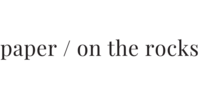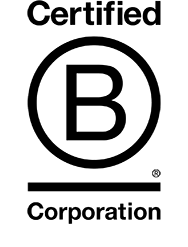While you’re busy avoiding plastic wrappers news surfaces that paper made from trees is now ‘not-done’ anymore. While your plastic straw has already been replaced by a reusable straw. You don’t eat meat and you barely take flights. And of course, you always carry a linnen bag instead of a plastic one. And still, the plastic industry keeps growing, the sales of meat keep rising, there are more and more flights every single year, and deforestation is continuing at a staggering rate.
Yes, that’s right. We need systemic change. Because you as a ‘consumer’ aren’t the answer. But maybe as a citizen you are.
Who bears the greatest burden?
Take these ‘fun facts’:
71% of the greenhouse gas emmissions are from only 100 companies
Only 100 fossil fuel companies are responsible for 71% of the worldwide greenhouse gas emissions. If companies continue like this the temperature can potentially rise up to 4 degrees Celsius. With all consequences that come with the increase.
The most famous sustainability campaigns come from the most polluting companies
In The Netherlands we have this slogan: ‘A better environment starts with yourself’. Or this gem: ‘Your own personal carbon-footprint. There campaigns were made by a big packaging company. Some companies are trying to shift the blame for their pollution to their customers.
The government can intervene on a larger level
Like we have been able to see during the current Covid-19 crisis, government interference is sometimes necessary if the issue can influence the whole of a society.
How can we say that the responsibility is on the consumer, when those 100 companies pollute that much. When those sustainable campaigns come from the ones who pollute the most. When the government can do so much more than you as a ‘consumer’.
‘Yes, but a better environment starts with you..’
The above is a prime example of eco-shaming. It utilizes guilt and shame to promote ‘sustainable behavior’. But something is off with this one.
You’re not the cause of this problem. The way society is set up forces you to be a polluter. You’re living in a world that is in dire need of systemic change. And not of behavioral change. Why not?
Not everyone has the same level of influence, power and resources
Quick change in the world is done with a lot of influence, power or resources. An example of this: An international company chooses not to sell any plastic toothbrushes anymore, but to produce sustainable toothbrushes and sell those at a reasonable price. This makes sustainable toothbrushes accessible to a large group of people.
Living sustainable is almost a full-time job
Weighing your choices every single time you make a purchase, making the ‘wrong’ decisions, being ashamed and feeling guilty and constant confusion as to where you can start living more sustainable.
Sustainability is often too expensive
If we only focus on how one person has to change individually we widen the inequality gap and you only create a sustainable ‘elite’, but not a sustainable world. Which can’t be our goal.
If you manage to live waste-free (kudos!) it doesn’t say anything about what happens in the rest of the world. It is like a drop in the ocean.
What can you do as a citizen?
Demand change where changes can be made quickly. For example with politicians or large companies with a lot of power, money and resources. Or to support companies who do things differently (this is also possible without buying anything).
Why we share this story
We discovered that what we have done the last five years is not enough. It is too little, too late. As of now we do things differently. Hello activism, goodbye eco-shaming!
Why did we start? To make the traditional paper industry more sustainable. This is even mentioned in our statutes, so that our mission can never be removed from our DNA. To empower that thought we have been a B Corporation since day 1.
What it boils down to: We believe that the system needs drastic and quick change. We do that from the inside, in the paper industry. So: rewrite the rules. Alternative paper has to become normal. And if possible it should be climate-positive. The production has to be different, and the systems should be better. Because planting trees is not enough.
We take action right now. We speak with the paper industry as to how we can make quick changes, and we are constantly researching new paper alternatives that are the future. And we will make these alternatives available. With the team of Paper / on the Rocks. With players in the industry that also believe in positive change. And hopefully also with you.
We can not do this alone.

